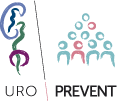Penile cancer is rare and can be easily diagnosed, for it starts with some penile impairment mainly in the glans (head of the penis).
Penile cancer is rare and can be easily diagnosed, for it starts with some penile impairment mainly in the glans (head of the penis revealed when retracting the part of the skin called foreskin or prepuce). It is a cancer that can be prevented in a great number of cases, since good penile hygiene significantly restricts its occurrence. Therefore, in order to reduce the risk for penile cancer, you should focus on the following:
- Good hygiene. The most important preventive measure is daily washing of the genital area with soap; there is no need to use antiseptics. Also, it is very crucial to retract the foreskin for revealing the glans. A whitish secretion (sebor) accumulates below the prepuce (foreskin) and may contain carcinogenic substances. Of course, all this applies provided you have not undergone circumcision (in circumcision, the skin covering the glans is removed). In case of phimosis (partial or full constriction of the opening of the foreskin), consult your Urologist without any further delay.
- Reduce the risk for HIP infection (Human Papilloma Virus). HPV strains 16 and 18 -not the ones associated with condylomas- are related to high risk for penile cancer. In U.S.A. boys/young males aged 11-21 years old are vaccinated with the HIP vaccine against human papillomas, which is the well-known vaccine for preventing cervical cancer of the uterus in women. The use of condom and limitation of sexual partners can protect you from getting infected.
- Avoid or give up smoking. Smoking may contribute to the development of penile cancer, particularly in men who have already been infected by HPV.


